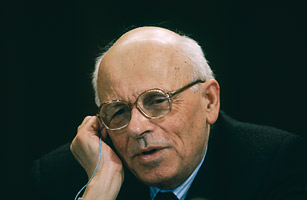
The Soviet nuclear physicist turned human rights campaigner turned prisoner in his own country Andrei Sakharov received the Nobel Peace Prize in 1975. But because of his views on Soviet political repression and its hostile relations with other countries, the Soviet government would not allow Sakharov to leave the country to collect the prize. In 1980 Sakharov was exiled to Gorky, stripped of all his honors and placed under constant surveillance for his views on the Soviet Union's invasion of Afghanistan. He also called for a worldwide boycott of the 1980 Olympic Games in Moscow. However, in 1986 Soviet leader Mikhail Gorbachev released Sakharov from his exile, and the aging dissident became a symbol of resistance to hard-line Soviet repression in the final three years of his life.